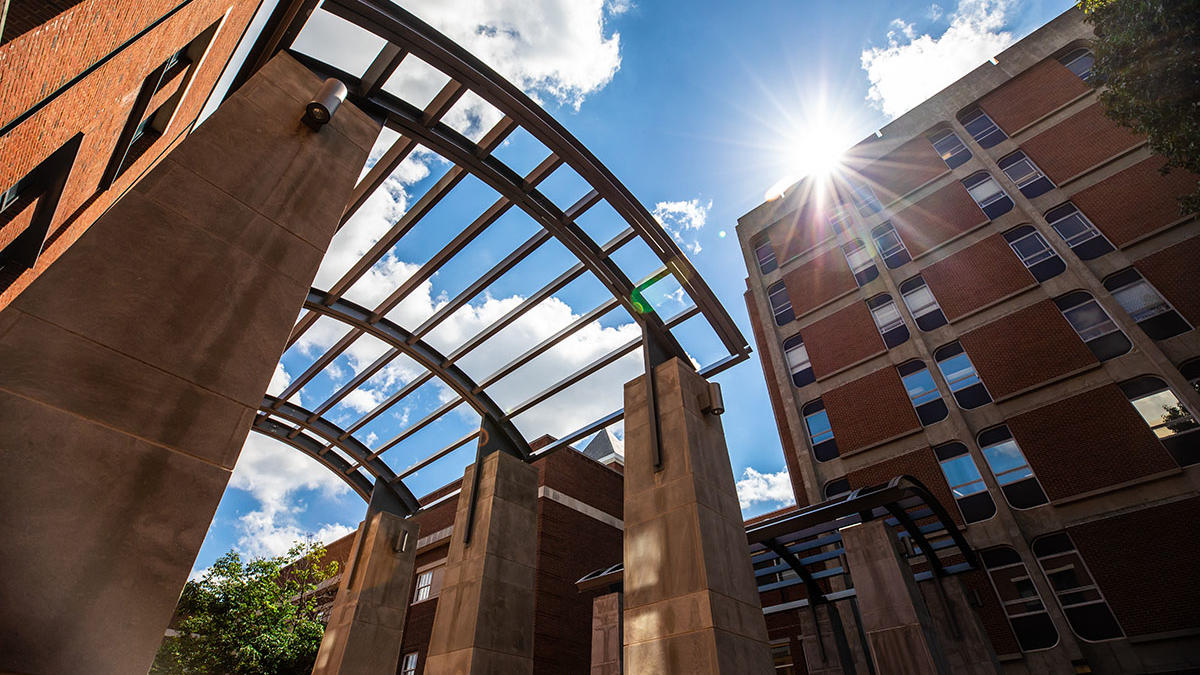By Elizabeth Chapin
The National Institute of Environmental Health Sciences (NIEHS) has awarded the University of Kentucky Superfund Research Center (UK-SRC) a five-year, $8.7 million grant to conduct research aimed at better understanding and minimizing the negative health and environmental impacts of chlorinated organic compounds found at Superfund sites across the Commonwealth and the U.S.
Funded by the National Institutes of Health's NIEHS Superfund Research Program since 1997, the UK-SRC integrates multidisciplinary research, training and community engagement around a common theme: reducing risks posed by environmental contaminants in vulnerable communities.
Kentucky is home to 20 (13 active) Superfund sites that are on the Environmental Protection Agency’s National Priorities List. They include manufacturing facilities, processing plants and landfills where hazardous waste has been improperly managed.
According to Dr. Bernhard Hennig, director of the center and a professor of nutrition and toxicology in UK’s College of Agriculture, Food and Environment, expertise in engineering, public health, as well as environmental, nutritional and biomedical sciences is needed to address the complex environmental and health problems pollution causes in Kentucky.
“The center includes more than 30 researchers from five colleges across the university — bringing the best together for a high-impact collaboration that advances our knowledge of chemical contaminants in our environment,” said Hennig.
UK-SRC researchers also collaborate with colleagues from other state and national agencies and work within affected communities to educate individuals about strategies that may help combat the effects of contaminants and improve overall health.
“The group of researchers is unique in that they are conducting basic research that is making an immediate impact in our community,” said Nancy Cox, dean of the College of Agriculture, Food and Environment. “The more than 20 years of ongoing funding is a testament to the university’s effort to pursue national prominence in environmental and health research while addressing issues of extreme importance to Kentuckians.”
The UK-SRC has four research projects and five cores. Hennig and Dr. Kevin Pearson, College of Medicine, lead the two biomedical projects. These projects focus on the idea that positive lifestyle changes, such as healthful nutrition and increased physical activity can help reduce negative health effects from exposure to persistent organic pollutants, such as polychlorinated biphenyls (PCBs), trichloroethylene (TCE) and per- and polyfluoralkyl substances (PFAS).
UK College of Engineering’s Kelly Pennell, Dibakar Bhattacharyya, and J. Zach Hilt lead the two environmental science projects. These projects are aimed at developing new methods to expedite cleanup of halogenated organic compounds through advanced material-based technologies, smart filters, and fate and transport science to reduce exposure risks.
The five cores include the Administrative Core led by Hennig and includes Research Translation Coordinator Lindell Ormsbee, College of Engineering, the Community Engagement Core led by Dawn Brewer, College of Agriculture, Food and Environment, the Data Management and Analysis Core led by Pennell, the Biomonitoring and Chemistry Environmental Analysis Core led by Andrew Morris, College of Medicine, and the Research Experience and Training Coordination Core led by Hilt.
The highly competitive grant puts the UK-SRC in the NIEHS’s nationwide family of Superfund Research Programs. UK has one of only 10 multi-project centers funded in 2020, placing it in a very elite group of just 23 centers nationwide.
Hennig says the funding was also secured with help from UK’s Proposal Development Office (PDO), which helps faculty, staff and students seek and secure external funding for research, scholarship and creative activities through the submission of competitive grant and contract applications.
“We want to thank Kathy Grzech and her team from the PDO for their tireless work on this complex proposal,” Hennig said. “They are an invaluable resource on campus, and we credit the success of this proposal to their expertise and guidance throughout the proposal development process.”
